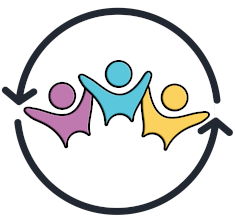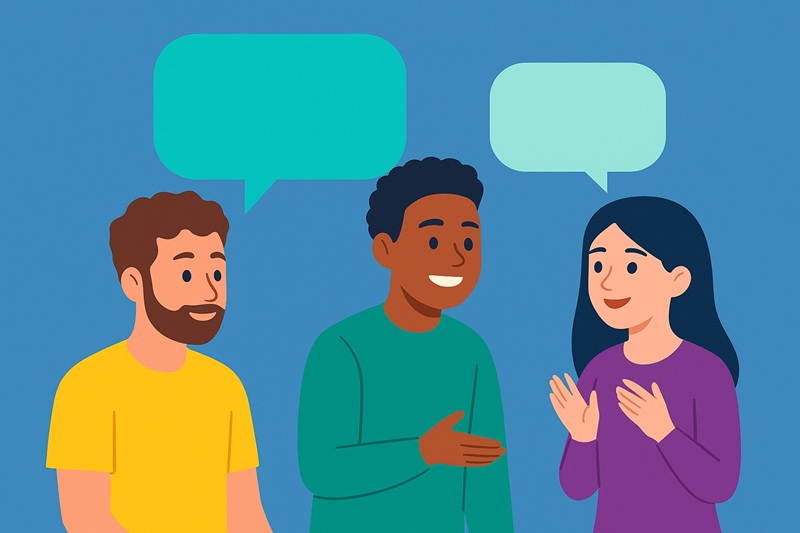In today’s fast-paced world, technology has revolutionized the way we learn, communicate, and connect with others. For young adults with autism and other disabilities, social learning can sometimes feel overwhelming or intimidating in traditional face-to-face environments. Fortunately, technology has advanced and opened new doors offering innovative ways to build essential social skills in a more accessible, flexible, and comfortable setting. One of the most significant benefits of using technology in social learning is the ability to practice and develop skills at your own pace, in the privacy of your own home.
Learning at Your Own Pace: The Key to Building Confidence
Everyone learns at a different speed, and this is especially true when it comes to social skills. Some may grasp concepts quickly, while others may need more time to practice before feeling confident in real-world interactions. Traditional classroom settings or group workshops may not always provide the necessary flexibility for individuals to learn at a comfortable pace.
Online social learning platforms, such as those offered by Capability Connections, allow participants to revisit lessons, exercises, and activities as many times as needed. This flexibility removes the pressure of keeping up with others and encourages learners to take the time to truly understand and internalize the material. Whether it’s practicing conversation starters, reading body language, or role-playing different social scenarios, participants can control their learning experience, ensuring that they fully grasp each concept before moving on.
The Comfort and Privacy of Learning at Home
For many individuals with autism or other disabilities using technology to engage in social learning from home is the best option. Participants have the advantage of practicing in an environment where they feel safe and comfortable. In this familiar space, learners can experiment with new communication techniques without the fear of judgment or embarrassment. The privacy of learning at home allows individuals to feel more at ease, which can lead to greater success in applying the skills they are learning.
Moreover, technology enables caregivers and family members to be more actively involved in the learning process. Online platforms often come with tailored resources for caregivers, providing guidance on how they can support their loved ones in building social confidence. Caregivers can practice along with participants, helping reinforce lessons in a familiar and supportive setting.
Interactive Tools for Engaging Social Learning
Technology offers a wide array of interactive tools that make social learning more engaging and effective. From video lessons to virtual role-playing activities, online platforms can simulate real-world social interactions in a controlled and customizable environment. These tools help participants practice essential skills such as initiating conversations, understanding non-verbal cues, and responding appropriately to different social situations.
For example, video lessons can break down complex social scenarios into manageable steps, allowing participants to pause, rewind, and replay key moments to better understand the dynamics of communication. Interactive quizzes and exercises can reinforce learning and provide immediate feedback, helping learners gauge their progress in a low-pressure setting.
A Flexible Schedule for Busy Lives
Another key benefit of using technology to enhance social learning is the flexibility it provides in terms of scheduling. Not everyone has the availability to attend scheduled classes or workshops, and juggling school, work, and personal commitments can make it difficult to find time for social skills training.
Online learning platforms allow participants to access courses and resources at any time, fitting social learning into their own schedule. Whether it’s early in the morning or late at night, individuals can engage with content whenever it suits them best. This flexibility is particularly helpful for individuals who may experience varying levels of energy, focus, or motivation throughout the day.
The ability to learn at your own pace and on your own schedule ensures that participants can make steady progress without feeling rushed or overwhelmed. It also enables them to build a routine that works for them, allowing for more consistent practice and, ultimately, more meaningful growth.
Tailored Learning for Unique Needs
One of the greatest strengths of using technology for social learning is its ability to offer personalized, tailored experiences. Unlike one-size-fits-all programs, online platforms can provide individualized learning paths that cater to the specific needs and challenges of each participant. This is particularly important for young adults with autism or other disabilities, as everyone has unique strengths and areas for growth.
At Capability Connections, for instance, participants have access to one-on-one practice sessions, where they can work with a licensed professional to receive personalized guidance and feedback. These tailored sessions help individuals focus on the areas where they need the most support, whether it’s improving eye contact, managing social anxiety, or learning how to navigate small talk. By customizing the learning experience, technology ensures that each participant receives the support they need to succeed.
Building Social Skills in Real-Time
While the privacy of learning from home offers comfort and safety, it’s also important to practice social skills in real-world scenarios. Technology provides a bridge between these two worlds by offering online group activities and live practice sessions where participants can interact with peers in real time.
These virtual group settings provide a space for participants to practice their newfound skills in a supportive, judgment-free environment. Whether it’s engaging in a group discussion, role-playing different social scenarios, or simply practicing active listening, these sessions help individuals apply their skills in real-time while receiving immediate feedback from peers and instructors. This kind of live practice is essential for building confidence and reinforcing the concepts learned through online courses.
The Future of Social Learning
In a world where technology is an integral part of daily life, its role in enhancing social learning cannot be overstated. For young adults with autism and other disabilities, online platforms provide a unique opportunity to develop essential social skills in a way that is flexible, accessible, and personalized. By allowing participants to learn at their own pace, in the privacy of their own home, technology creates a supportive environment where individuals can build confidence, master social interactions, and thrive in real-world situations.
As we continue to embrace the power of technology, we open up new possibilities for learning, growth, and connection—ultimately helping more individuals achieve their full potential.



